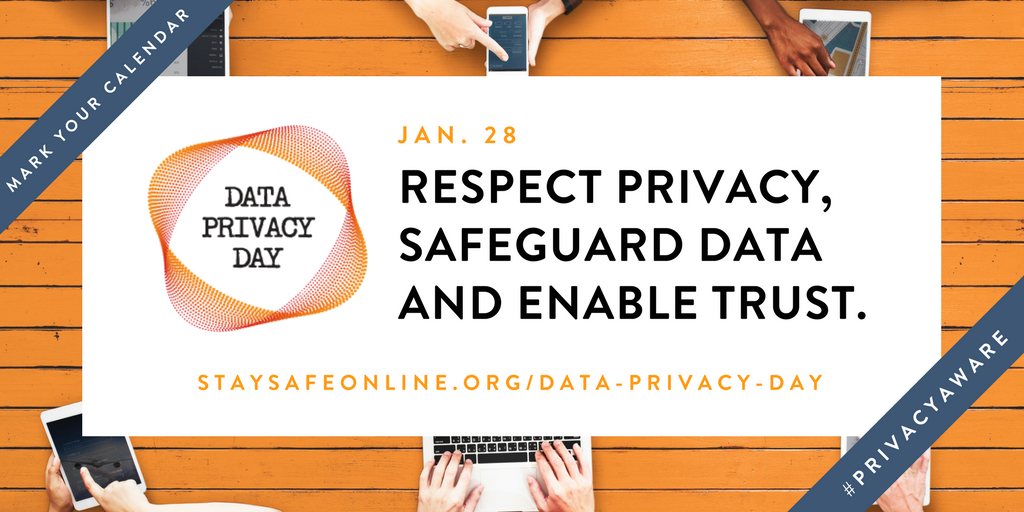Seven Privacy Habits You Can Start Today
Home Help Center Seven Privacy Habits You Can Start Today
Taking care of your identity and protecting your privacy might seem like insurmountable tasks, especially in the face of major data breaches, large-scale international hacking, and other “out of my hands” threats.

Trying to take every single privacy step all at once is a surefire way to suffer from burnout and “data breach fatigue,” a very real phenomenon that can occur when the public is overwhelmed with constant news of identity theft dangers. But experts in a variety of fields know that making real changes in your life starts small by developing good habits and sticking to them. Tune In to Watch: Data Privacy Day 2018 – Live From LinkedIn hosted by the National Cyber Security Alliance.
Here are seven great privacy habits you can start working on:
- Mailbox Monday: Your mailbox contains many of the pieces of your identity puzzle, and recent statistics have shown that mail theft is still a widespread problem. Make Monday the day you stop leaving mail in your mailbox, stop mailing important papers or checks in the corner mailbox, and stop throwing away unshredded documents or credit card offers.
- In The Loop Tuesday: Sign up to receive the Identity Theft Resource Center’s In The Loop delivered to your inbox each week …yes, as in “too much information.” It outlines news items and information on oversharing and other threats to your personal data. Signing up is easy, and the link can be found here.
- Weak Password Wednesday: It’s tempting to use a super-simple password (like “password”…literally) or to make one really good password and use it for all your online accounts. Unfortunately, both of those are great ways to hand your information over to a hacker. Use Wednesday to think about your passwords and to change a few of them on the dozens of online accounts you may have.
- Twitter Thursday: From live Twitter chats to daily social media updates from privacy experts, Thursday is a great day to spend a little while on Twitter catching up on the latest news. A number of organizations host regular chats throughout the month, like the ITRC’s monthly #IDTheftChat events. Participate in a #ChatSTC with @StaySafeOnline on Wednesday, Jan. 10, where we’ll be talking about “Privacy Matters ‒ Why You Should Care and What You Can Do to Manage Your Privacy.”
- Financial Friday: It’s the last day of the work week for a lot of people, and there’s no better day to spend some time on your financial privacy. Monitor your bank accounts and credit card accounts for any signs of unusual activity, and check up on any mobile payment accounts or apps you use (like PayPal and Apple Pay) to make sure there’s nothing out of the ordinary. If your credit card company offers it, log in and take a peek at your credit score; you won’t see your whole report, but if there’s a sudden, dramatic change in your score, that’s a sure sign that you need to order copies of your credit reports.
- Share It Saturday: Did you know that you can be harmed if someone you know falls for a scam? Let’s say your mom shares a “forward this to ten people” hoax email or social media post, and you click on a link it contains. Congratulations, you may have just downloaded a virus to your computer. It’s not enough to protect your own privacy, so Saturdays are a great day to share genuine news items about data breaches, scams, and fraud. You’ll protect the people you care about, and you just might be protecting yourself.
- Social Media Sunday: A lot of people like to set aside Sundays for a little rest and relaxation before heading into another work week, and that can mean checking up on social media buzz. But are you oversharing online? Do you have your privacy settings in place, and are they set to the most protective level? Stop and think for a while about what you share, where you share it, and how far it can go.
Contact the Identity Theft Resource Center for toll-free, no-cost assistance at (888) 400-5530. For on-the-go assistance, check out the free ID Theft Help App from ITRC.
How much information are you putting out there? It’s probably too much. To help you stop sharing Too Much Information, sign up for the In the Loop.
Get ID Theft News
Stay informed with alerts, newsletters, and notifications from the Identity Theft Resource Center

